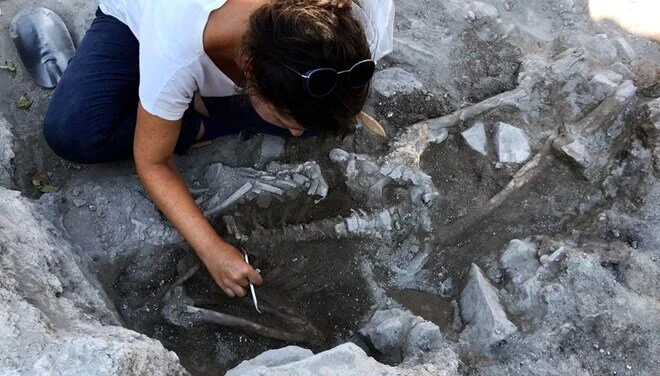
Traces of the Santorini Volcano Eruption and Tsunami Victims Found on Türkiye’s Coastline
In recent days, a swarm of earthquakes in the Aegean Sea has alarmed the residents of Santorini, leading to a rapid evacuation of the island, which has now transformed into a deserted landscape. Some seismologists suggest that this earthquake activity may be a precursor to a volcanic eruption. The recent seismic events brought to mind
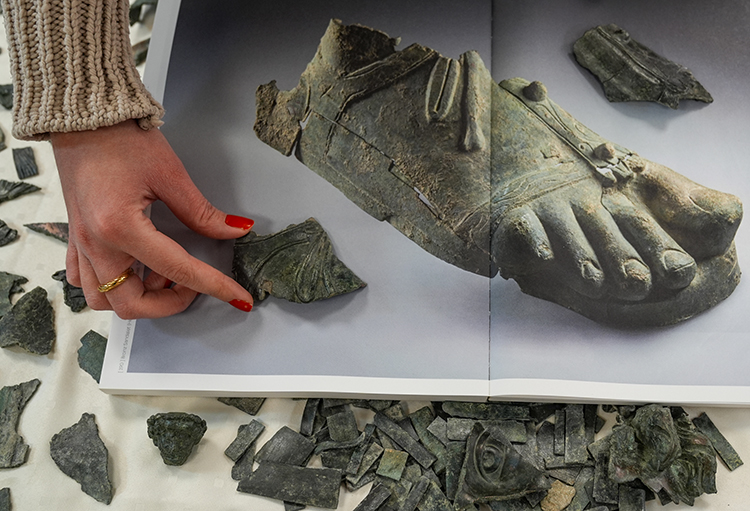
Discovery of 2,000 bronze sculpture fragments in Metropolis’ junkyard
Archaeologists unearthed nearly 2,000 bronze statue fragments in the scrapyard area of the ancient city of Metropolis. Metropolis Ancient City, located in the Torbalı district of Izmir, Türkiye, is a significant archaeological site that dates back to the 3rd century BC. This ancient city was particularly important during the Hellenistic and Roman periods, serving as
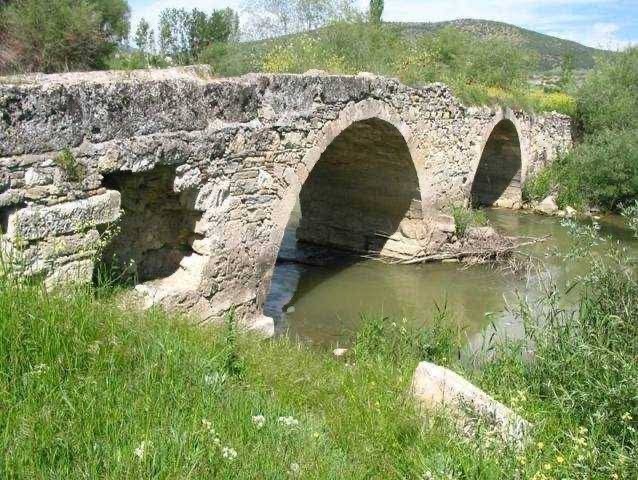
Restoration of the Asar Bridge from the Roman Era Completed
The Asar Bridge, an extraordinary remnant from the Roman era, has recently undergone a significant restoration. This project aimed to preserve the architectural integrity of the bridge while ensuring its safety for future generations. Located in the Çal district of Denizli, the Asar Bridge has faced the threat of deterioration for years due to treasure
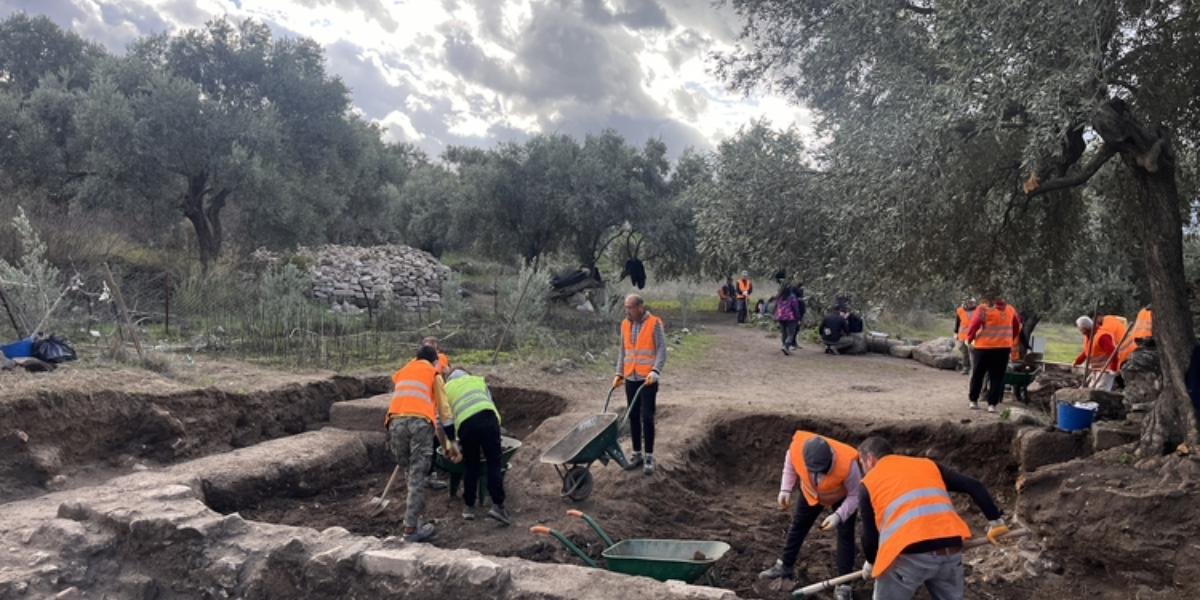
Some artifacts uncovered in the Heraclea excavations revealed 2000-year-old paw prints
In the excavations of the ancient city of Heraclea, one of the important settlements in the Caria region established in the 5th century BC, some artifacts revealed 2000-year-old paw prints. Heraclea is located within the borders of Kapıkırı village in the Milas district of Muğla province in present-day Türkiye. The city, which once had a
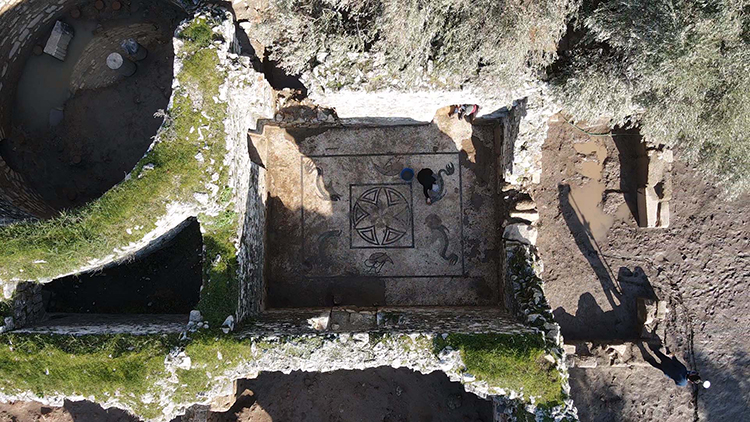
The mosaics that were uncovered on the floor of the Roman bath, which had been used as a barn by the villagers for years
In the ancient city of Herakleia, located in the Milas district of Muğla, an important coastal city in Türkiye, mosaics depicting crocodiles, dolphins, flamingos, and eels have been uncovered on the floor of a Roman bath that had been used as a barn by villagers for many years. Herakleia was an important center of trade
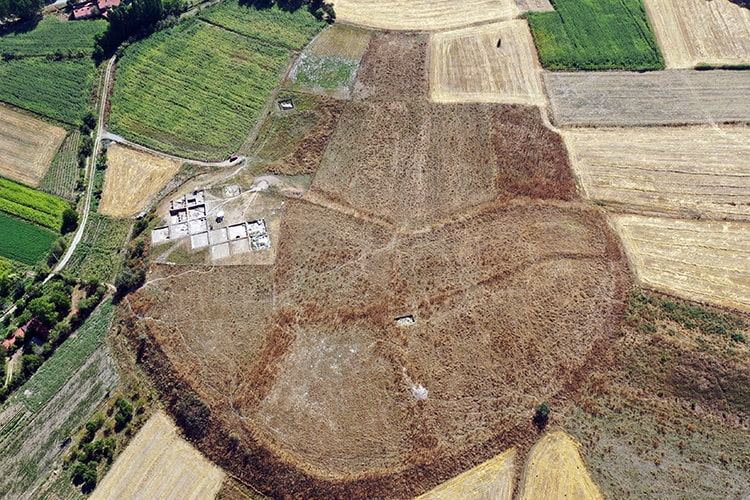
Archaeologists have discovered 4,000-year-old snail shells in western Türkiye
In ongoing excavations at Tavşanlı Mound in western Türkiye archaeologists have discovered 4,000-year-old snail shells. Tavşanlı Mound, located in the Tavşanlı district of Kütahya, is known as one of the largest Bronze Age settlements in Türkiye. Numerous artifacts from the Bronze Age, the Assyrian Trade Colonies period, and the Hittite Empire have been uncovered during
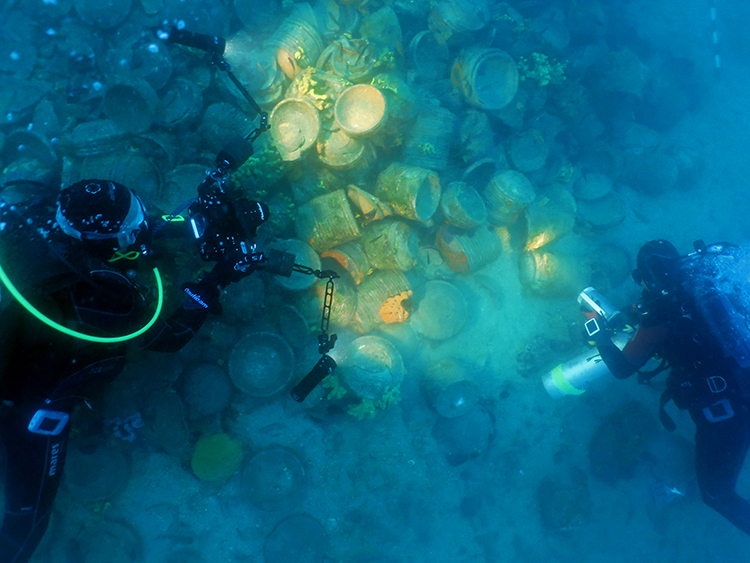
The Turkish Sunken Inventory Project: A 1500-Year-Old Trade Shipwreck Discovered
Under the “Blue Heritage” initiative of the Turkish Sunken Inventory Project, underwater studies conducted along the Aegean Sea coasts have uncovered a 500-year-old trade shipwreck. In underwater research conducted with robotic underwater vehicles designed by Turkish scientists and produced with local resources, a shipwreck dating back to the end of the 5th century AD was
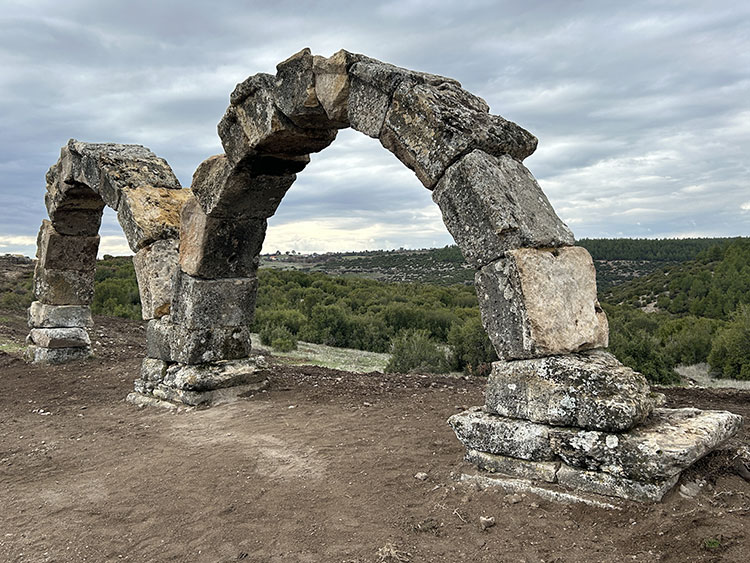
The restoration of the Roman aqueducts in the ancient city of Blaundos is ongoing
The restoration work on the Roman aqueducts uncovered during ongoing excavations at the ancient city of Blaundos is continuing. Blaundos is located in the Ulubey district of Uşak province. It is referred to as a Garrison City because it was a settlement area for the soldiers who came from Macedonia for Alexander the Great’s campaign
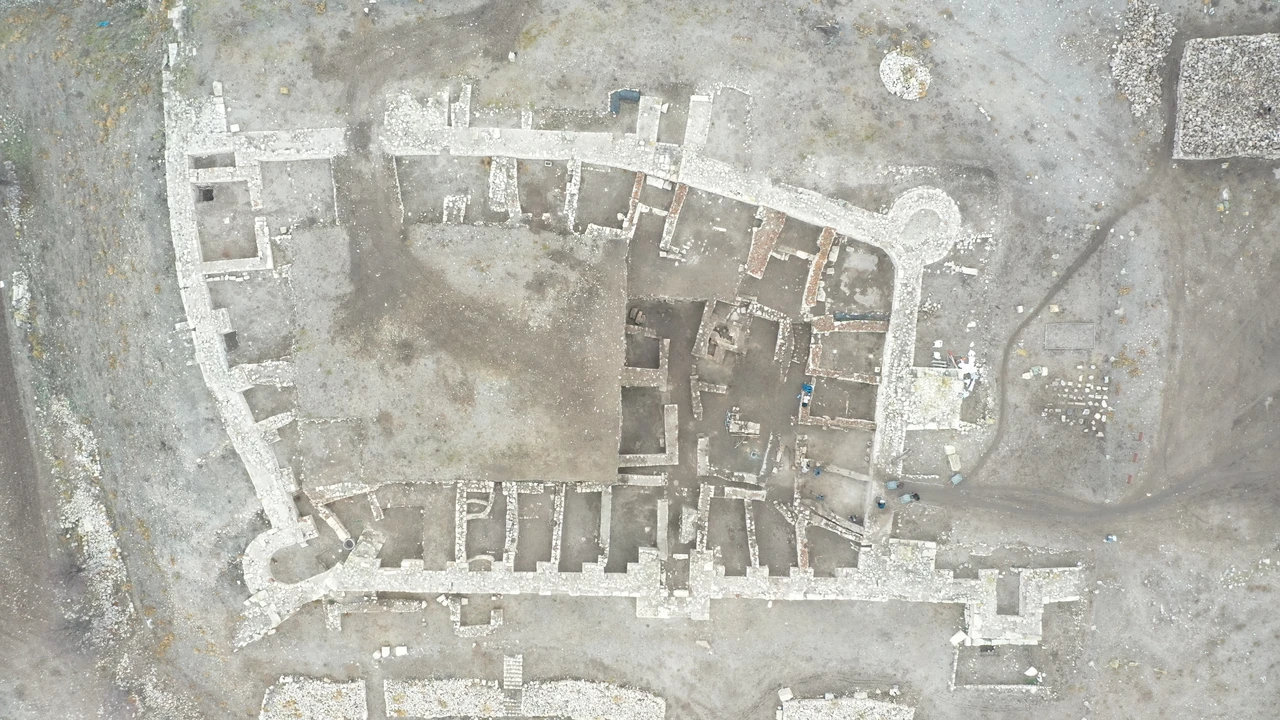
In the excavations of the 4,000-year-old Amorium Ancient City, a bath from the Turkish-Islamic period was discovered
In the ongoing archaeological excavations at the 4,000-year-old Amorium Ancient City, located near the Emirdağ district of Afyonkarahisar in western Türkiye, a bath from the Turkish-Islamic period has been discovered. The excavations are being conducted in collaboration with the Ministry of Culture and Tourism and Anadolu University (AÜ), under the leadership of Prof. Dr. Zeliha
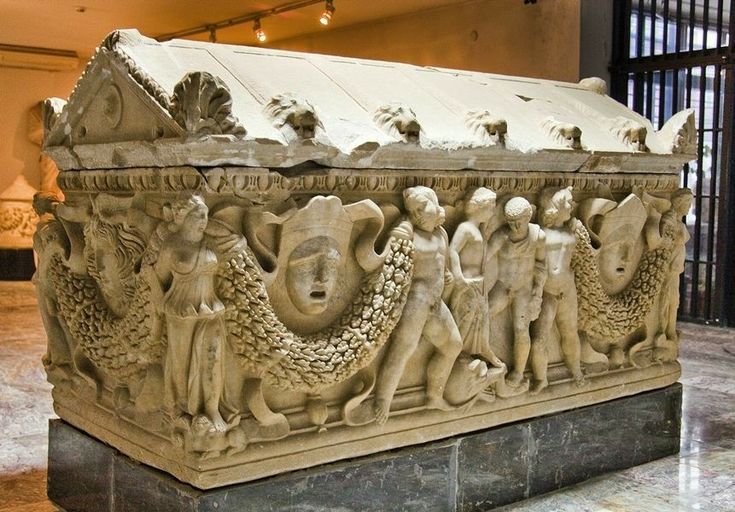
A part of the rich cultural heritage of the ancient world: The Apameia Sarcophagus
The Apameia Sarcophagus, located in present-day Türkiye within the ancient city of Apameia (modern Afyonkarahisar), is a highly impressive sarcophagus. Dated to the second quarter of the 2nd century AD, this sarcophagus holds significant historical and artistic importance. The Apameia Sarcophagus is made of fine-grained white Docimeum marble. The Nikes adorning the corners of the
